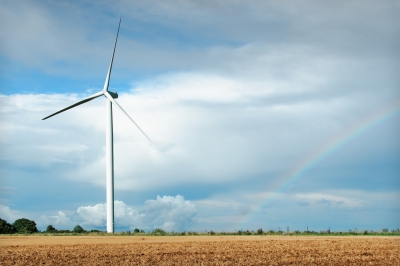
As wind power generation becomes more important, experts at Flinders University are examining whether wind 'farm' turbine noise in the environment can affect sleep and wellbeing of nearby residents.
In a review of existing literature on wind turbine noise effects on sleep, the Flinders sleep researchers have weighed up the results of five prior studies. While previous studies showed no systemic effects on common sleep markers such as time taken to fall asleep and total sleep time - they did reveal some more subtle effect on sleep such as shifts in sleep stages and less time in deep sleep.
"Comparing wind turbine noise to quiet background noise conditions showed no systematic effects on the most widely used objective markers of sleep, including time taken to fall asleep, total sleep time, time spent awake during the night and time spent asleep relative to overall time in bed," lead author Tessa Liebich says of a new review paper published in the international Journal of Sleep Research.
"However, some more subtle effects on sleep in some objective studies were established including shifts in sleep stages, less time spent in deep sleep and more time spent in light sleep."
Through Australian NHMRC funding, the Adelaide Institute for Sleep Health study at Flinders is studying sleep patterns in more than 70 volunteers in a carefully controlled in-laboratory experimental study to investigate potential wind turbine noise impacts on sleep and daytime outcomes. Their final results are expected to be available around mid-2021
Senior author Dr Gorica Micic






